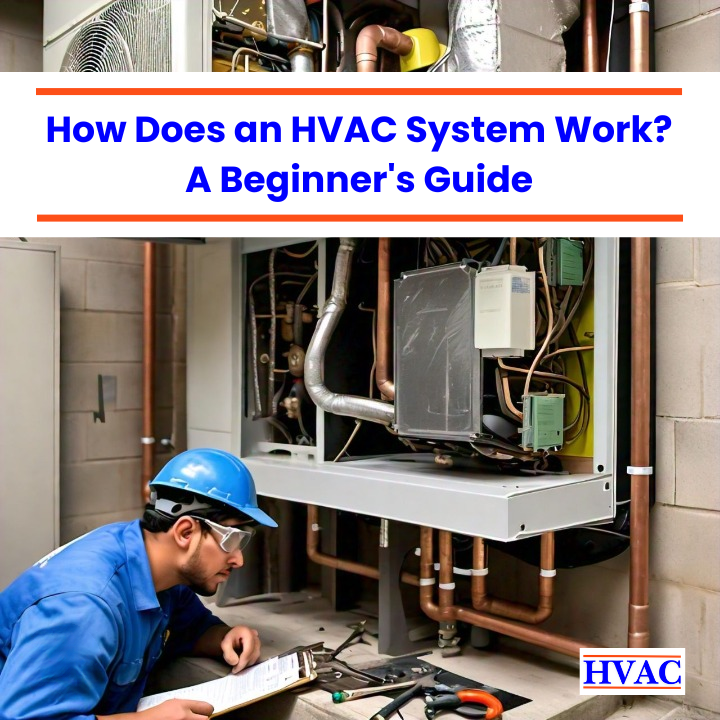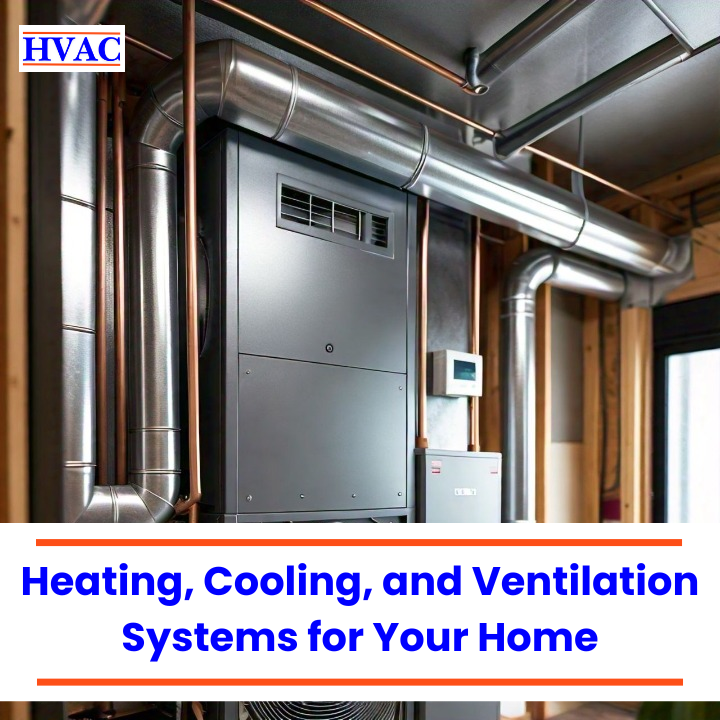Heating, ventilation, and air conditioning (HVAC) systems play a crucial role in maintaining comfort and air quality in homes and buildings. Whether you’re battling the chill of winter or the sweltering heat of summer, an HVAC system ensures that your indoor environment remains comfortable and livable. In this guide, we’ll break down everything you need to know about how HVAC systems work, their components, and their importance.
What Is an HVAC System and Why Is It Important?
An HVAC system is a complex network of components designed to regulate indoor temperature, humidity, and air quality. These systems:
- Heat your home during cold weather (via furnaces or boilers).
- Cool your home during hot weather (using air conditioners or heat pumps).
- Maintain fresh air circulation through ventilation.
Without an HVAC system, modern homes would struggle with discomfort, inefficient energy use, and poor indoor air quality.
Components of an HVAC System
Understanding the parts of an HVAC system can help you appreciate how they work together. Here’s a breakdown of the primary components:
1. Heating Components
- Furnace or Boiler: Produces heat, typically using gas, oil, or electricity.
- Heat Exchanger: Transfers heat from the furnace to the air that flows into your home.
2. Cooling Components
- Compressor: Pumps refrigerant through the system to facilitate heat exchange.
- Evaporator Coils: Absorb heat from indoor air.
- Condenser Coils: Release heat outdoors.
3. Ventilation Components
- Ductwork: Distributes conditioned air throughout your home.
- Vents: Deliver air into rooms and return stale air to the system.
4. Control System
- Thermostat: Acts as the brain of the system, allowing you to set and maintain desired temperatures.
How Does an HVAC System Work?
Here’s a step-by-step explanation of how HVAC systems function in different modes:
1. Heating Mode
- The thermostat senses a drop in temperature and signals the furnace or boiler to start.
- The furnace burns fuel to generate heat or the boiler heats water for circulation.
- The heat exchanger warms the air, which is then distributed via ductwork.
- Warm air is released into rooms through vents, raising the indoor temperature.
2. Cooling Mode
- The thermostat detects a rise in temperature and activates the air conditioner.
- The compressor pumps refrigerant to the evaporator coils, where it absorbs heat from indoor air.
- The heated refrigerant moves to the condenser coils outdoors and releases the heat.
- Cool air is blown back into the home through the ducts.
3. Ventilation Mode
- The system pulls in fresh outdoor air, filters it, and circulates it inside.
- Stale air is expelled, maintaining a healthy indoor environment.
Types of HVAC Systems
Different homes require different HVAC setups. Here are the most common types:
1. Split Systems
- Separate heating and cooling units (e.g., a furnace and an air conditioner).
- Ideal for homes with existing ductwork.
2. Packaged Systems
- Combines heating and cooling components in a single unit.
- Common in smaller homes or spaces with limited indoor installation areas.
3. Ductless Systems
- Includes individual air handlers for specific rooms.
- Great for homes without ductwork or for zone-specific comfort.
How HVAC Systems Interact with Other Home Systems
Insulation
Good insulation reduces the workload on your HVAC system by maintaining indoor temperatures.
Windows and Doors
Proper sealing prevents drafts and keeps conditioned air inside.
Smart Home Technology
Smart thermostats and home automation systems can improve HVAC efficiency and convenience.
Common HVAC Terms You Should Know
- BTU (British Thermal Unit): Measures the heating or cooling capacity of an HVAC system.
- SEER (Seasonal Energy Efficiency Ratio): Rates the efficiency of air conditioners and heat pumps.
- MERV (Minimum Efficiency Reporting Value): Indicates the effectiveness of air filters.
- Heat Pump: A device that provides both heating and cooling by transferring heat.
Frequently Asked Questions (FAQs)
How often should I service my HVAC system?
It’s recommended to schedule maintenance twice a year: once before winter and once before summer.
What is the lifespan of an HVAC system?
Most systems last 15–20 years with proper maintenance.
How can I improve my HVAC system’s efficiency?
- Change air filters regularly.
- Seal leaks in ductwork.
- Use a programmable thermostat.
Is it normal for my HVAC system to run continuously?
During extreme weather, it’s normal for the system to run longer, but continuous operation may indicate an issue.
Conclusion
Understanding how an HVAC system works can help you appreciate its importance and make informed decisions about maintenance, upgrades, and energy efficiency. Whether you’re a homeowner or a curious beginner, knowing these basics will ensure your system operates at its best.
For expert tips and more guides, explore our other articles on hvacexpertguide.com. If you’re experiencing issues or planning an upgrade, don’t hesitate to contact a professional today!





